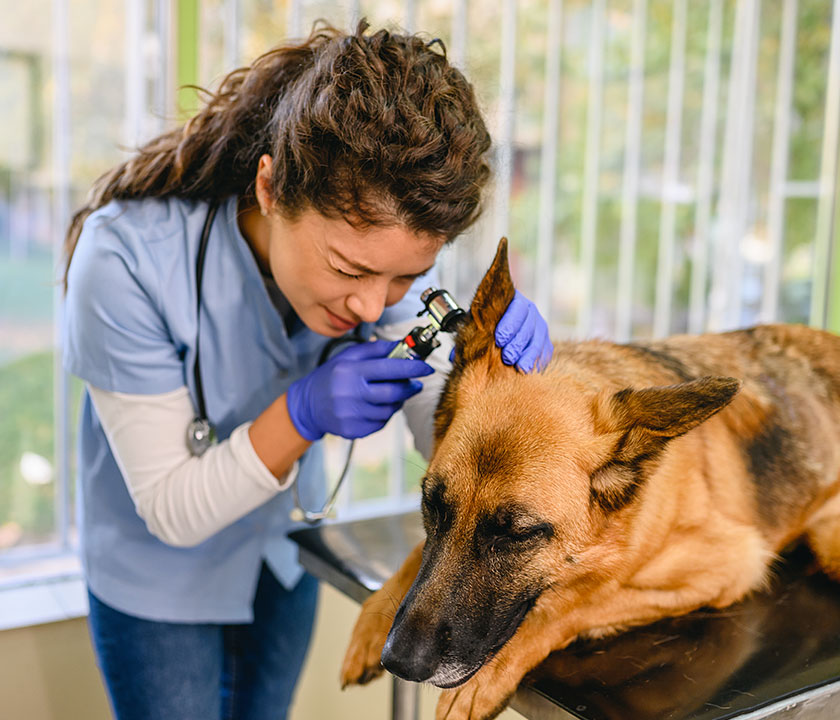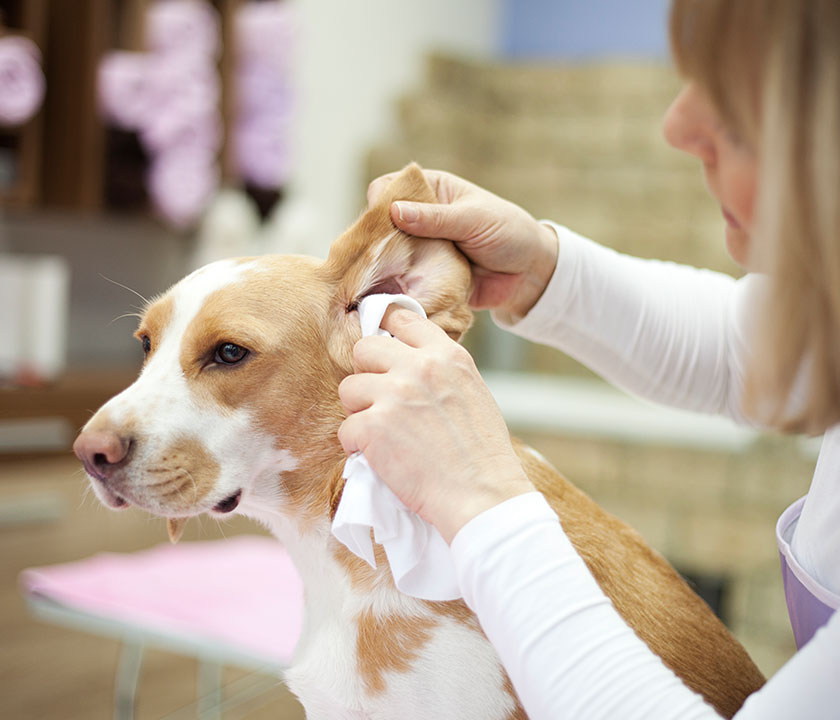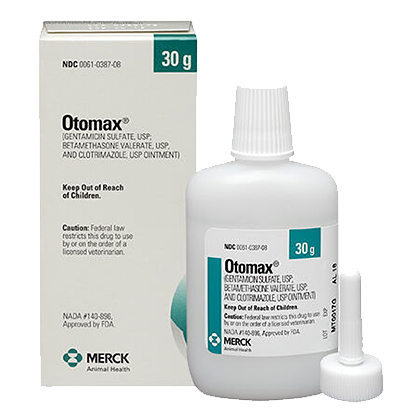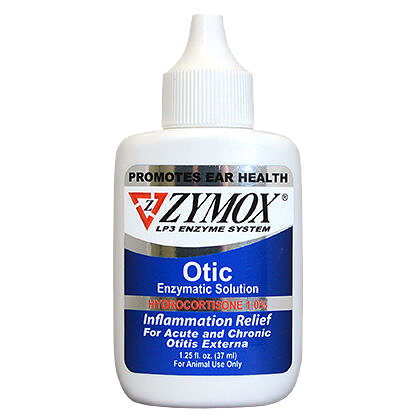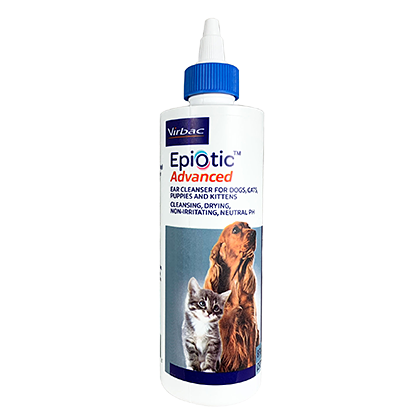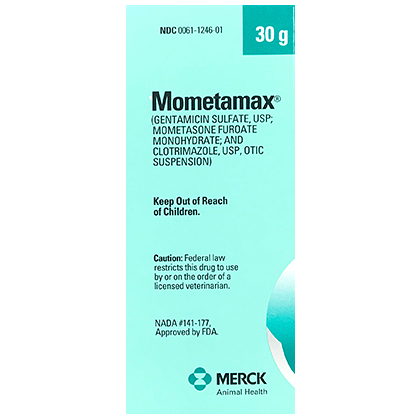Your Pet's Ears and Hearing Health
Ear And Hearing Health for Dogs and Cats
A dog's ear has 18 muscles at the base, and a cat's, 32, to help them swivel to detect where sounds are coming from. Their ear canals are also longer than ours, allowing them to hear sounds at distances up to 4-5 times greater than humans can. The innermost part of the ear houses the vestibular system, which contains fluids responsible for your cat or dog's excellent sense of balance.
For the most part, the ears are self-cleaning. The ear canal contains a diverse, balanced microbiome of naturally-occurring bacteria and fungi. Earwax keeps the inner ear clean and lubricated, trapping shed skin cells, dust, and bacteria.
For some pets, though, the ear's complex structure leads to health issues. Bacteria and fungi can overgrow in the ear canal, especially in pets with floppy ears that trap moisture. Parasites, allergies, tumors, and foregin objects can cause or exacerbate ear issues and lead to pain, itch, and irritation.
Protect your pet's hearing and balance by learning how to keep their ears clean and healthy.
Protect Your Pet's Ears and Hearing Health
Many dogs and cats will go a lifetime without experiencing an ear infection, irritation, or even needing to have their ears cleaned. However, up to 1 in 5 dogs, and as many as 1 in 15 cats that visit their veterinarian have an ear disease, and many experience recurring infections or irritation and may require repeated vet visits and regular cleaning to keep their ears healthy.
To care for your pet's hearing and ear health:
- Seek immediate vet care for ear infections. An ear infection is painful and cannot be treated with home remedies. See your vet as soon as possible to avoid an infection that travels to the inner ear, potentially causing permanent hearing loss.
- Clean only as needed. Most pets' ears are self-cleaning, but in pets prone to infection, your vet may advise you to use an otic cleanser weekly.
- Inspect ears regularly. Even in pets that do not get infections, check ears as a part of your normal grooming routine for odors, excessive or discolored discharge, parasites, lumps, and bumps, and see a vet if you notice anything unusual.
- Keep ear canals dry. Avoid letting water enter ears during baths. Towel dry the external ear after swimming or use a pet-approved cleanser to prevent infection.
- Avoid excessive noise. Loud sounds can damage the inner ear, causing permanent hearing loss or deafness, especially in older pets. Avoid playing loud music around pets and keep them away from loud sources of noise such as fireworks and lawn mowers.
The skin lining the inside of the ear is thin and delicate. Many health issues, including food intolerances, allergies, and parasites manifest as itchy or painful ears. If your pet has recurring ear issues even with proper upkeep, it could be a sign of another underlying issue.
Protect Your Pet's Ear Health
PetMeds® carries everything you need to care for your pet's ear health, from otic cleansers and ointments to prescription medications. Shop now to save on pet essentials delivered to your doorstep.
Save Time & Money with AutoShip
Save 35% OFF your first AutoShip order | Use code SAVE35 in cartFrequently Asked Questions about Ear Health in Pets
I have another question about hearing and ear health in pets! Learn more with our Pet Health Advice resource center or talk to your vet at your pet's next visit.






















